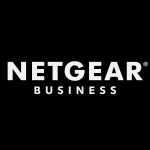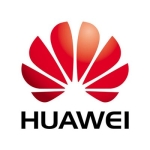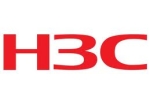What is most valuable?
When it comes to troubleshooting, in the past we had to take the console and do configuration changes, and we had to be on location or have a VPN connection to access it. But with Meraki, there is the advantage that you have dashboard access via the internet and you can work on it from anywhere. With Meraki switches, there is virtual stacking. Let's say you have two branches where two different switches are located. I can take a few ports from switch 1 and few ports from switch 2 and I can do a virtual stack between these ports. And there is a port schedule, as well. For example, some customers want to do make budget choices to save power or something. There is a port schedule option to give power for access points through these PoE ports on a schedule you choose, like during office hours. Morning 9:00 to evening 6:30, and it will work only Monday to Friday. I can schedule so these ports will be running those times only. In an annual scenario, this can mean more savings for the customer.
You can select multiple ports at a time in a checkbox, and you can do a port configuration. If uplinks are required, you can configure that, too. There are a couple of tools available in the Tools section where you can do ARP, Ping, LED status, etc. If any network goes down or is getting any warnings, you'll get an immediate amber symbol. We'll get alerts and an immediate email even if one link goes down or anything is wrong. We require some additional integrated tools for when a switch is down, like WhatsUp Gold, or SolarWinds. So on the back-end, we need to integrate our email servers into the process. We need more tools for that. But in the dashboard, it all comes together and gives greater visibility, including the UX pack if you want - everything will be there.
The features part is good. Everything in terms of access and everything else.
What needs improvement?
In terms of what could be improved, there's API. For example, we recently implemented Microsoft Azure. We have it integrated now into the dashboard for authentication. Dashboard authentication includes local users which we are creating in the dashboard itself. We integrated Azure with our local active directory. As the administrator in IT, I can log into the dashboard with my AD credentials only, so we used Xero and SAML with the Microsoft Azure. It's working fine. Similarly in the camera. Generally, the camera is in the cloud. In the camera, every field requires you to enter some information. If you have a cloud archive, it will be directed towards your Meraki cloud based on whatever storage license you have, 90 days or 30 days. But we worked on a different approach. We developed some more internal applications with other partners. We are pitching data from the Meraki camera, and we are putting into our internal storage with the Python script in the back-end.
Another thing is CMX. There is a location tracking for the employees who are inside, and with Meraki there is a Bluetooth option with a separate radio. They have a separate Bluetooth radio, Air Marshal radio, 2.4 and 5 GHz, for all the different radios, but it's all ELM mode in the old access points. It serves the clients as well as monitors the rogue access points. But in Meraki, we have a separate radio for it to monitor all the Bluetooth clients who are coming and who are identified from the dashboard. We will send it through the API to the location-scanning API to a third-party application and it gives you greater visibility. We can customize our own application of the dashboard. For example if you have a retail shop, you can put your store map on there and you can track the clients, like how many clients have visited. We can customize it. We worked on that customization pack.
In terms of troubleshooting, if we get more tools there is an issue. Our pack has some internal access, right? In traditional solutions we can go to the CLI and we can see whatever you want to change and you can play around with it. But in Meraki, if they got additional tools maybe it would help. In terms of MS I see some complications. There are some voice-related services that some customers are expecting, so they want to put an MS firewall in Azure or AWS, and they want to ship the traffic from that firewall. For example, I am at different branches, so the initial firewall will make the decision. They are looking at that kind of scenario. I hear from some of the customers with MS, that there are some voice-related, SIP services. So it's a limitation. If you have a voice service with AmEx, I saw something that SIP ALG will not support AmEx. So that's one limitation here.
For how long have I used the solution?
I have been working with Meraki Switches for the past year. I have actually worked with all Meraki products, not only a particular one, as it is a complete stack. I've worked with them for a couple of POC's that we did for the customers. They were implemented mostly in firewalls and access points. A feature we recently implemented for one location was Mindtree.
What do I think about the stability of the solution?
In terms of stability, it is stable.
What do I think about the scalability of the solution?
You can scale it up. You can take any traditional scenario that you have a license for and scale up. I'm working with 200 or so people, so I just bought a few access points and a few switches. If you compare Meraki with the traditional, every switch or every firewall and every access point, every WLCL switch in the traditional way requires some licenses. If that device has a MAC throughput capability, I need to go for another device. If there is a WLCL pack, it requires another device I need to purchase. But with Meraki, there is nothing like that, the license will cover the hardware, RMA, and the licensing plan.
Recently, it converted from the quote elimination to party-wise licenses. If you have a device license, you simply add the licenses and you can play around with it. There are more restrictions, like if you see access points with MR, ENT it will come with an MV, so it's not about the model. For example, today I have an MR42, tomorrow I'll buy some MR53 or MR87. It is independent of the model and you can add whenever you have the API licenses. Similarly, if you have a camera license, you can add. If you have MDM or MV, you can add. It's unlimited. It is scalable, and it gives you flexibility and security. Every device will establish a tunnel with official encryption towards the Meraki cloud and all the devices will be securely connected and it will take less than 1 kbps in terms of configuring data.
We have worked on the homes of CEO's and directors and up to to hospitals, retail and manufacturing establishments. Everything is supported and scalable.
How are customer service and technical support?
They give 24/7 support, so whenever you have an issue, you can write or call directly if you feel that it is higher-priority. You can simply call the toll-free number and they'll immediately come to the call and help. In terms of any troubleshooting, they will do it from their end. Because we have some limited access in terms of troubleshooting, if you want to do some changes like firmware-related bugs or something, they will fix it from their end on the back-end.
How was the initial setup?
The initial setup is very simple. I ordered the devices and immediately the software is loaded and you'll receive a dashboard key so you can start the configuration. Once the device is running you can simply play around with it.
It only takes minutes to set up for basic configuration. If you're looking for integrations you may need to do some registration or back-end coding or something. Apart from that, if it's a dashboard it is a configuration template. If you have multiple branches, you can create one template for other branches.
What other advice do I have?
I recommend Meraki MS Switches. If the user wants more flexibility in terms of configuration and manageability, I would definitely recommend implementing it.
On a scale of one to ten I would rate Meraki MS Switches a nine.
Disclosure: My company has a business relationship with this vendor other than being a customer. partner

















